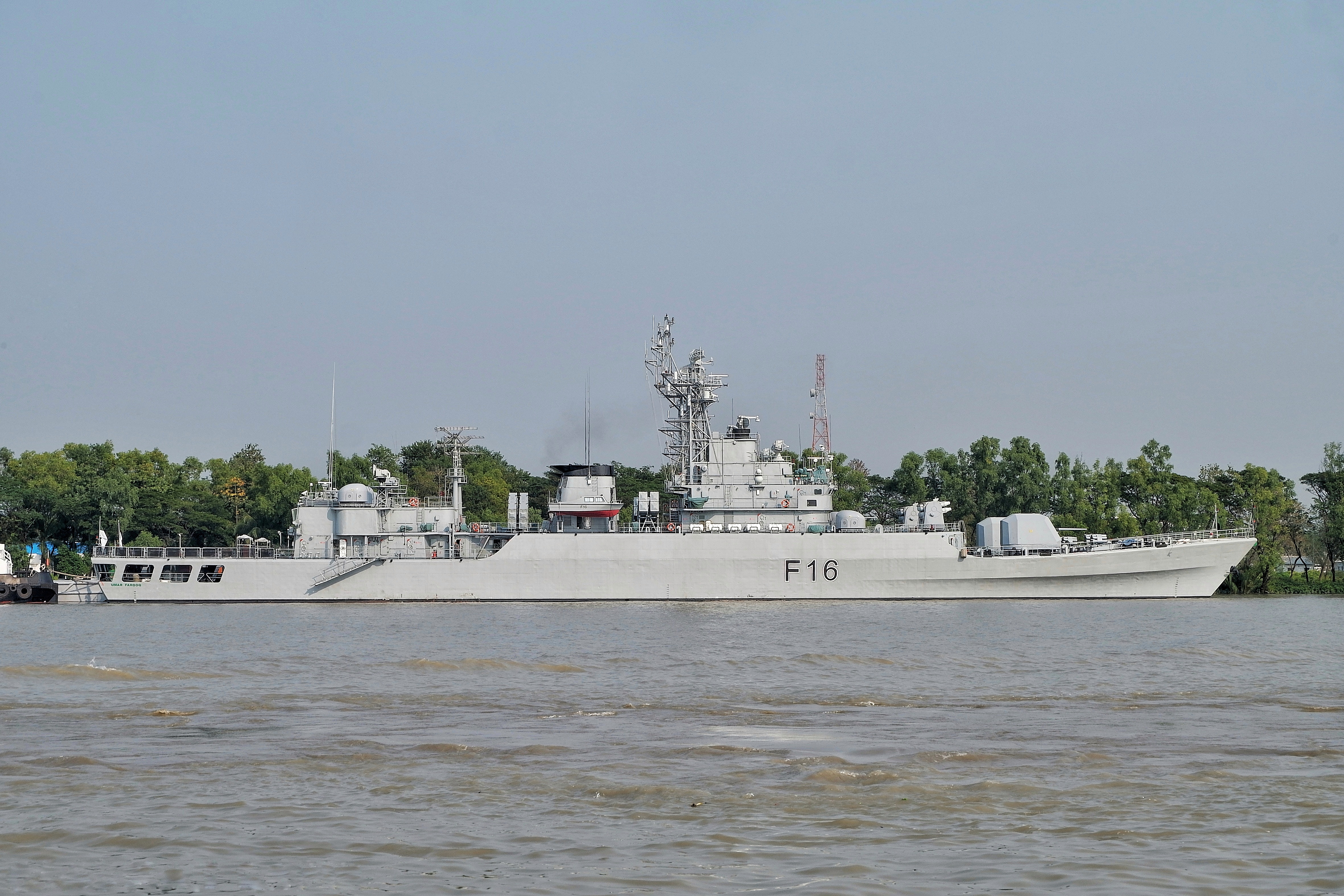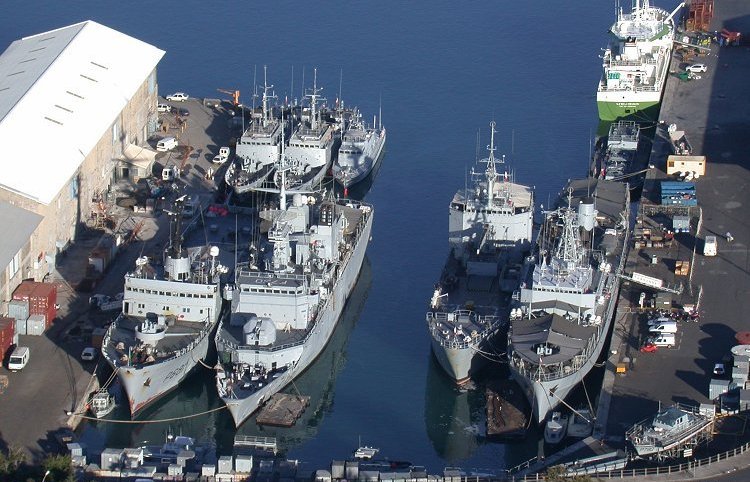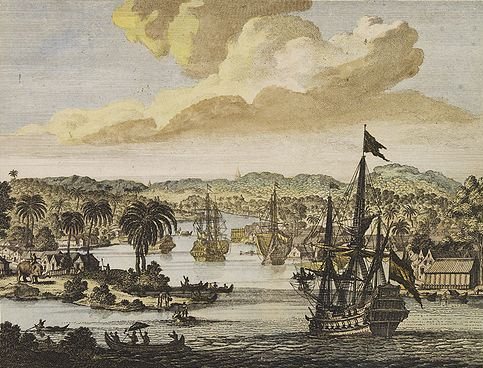|
BNS Isa Khan
BNS ''Issa Khan'' is a naval base of the Bangladeshi Navy in Chittagong district of Bangladesh. It is the largest base of Bangladesh Navy. History Before Bangladesh Liberation War, the naval base was named as PNS Bakhtiar. Post independence the base was named BNS Chittagong. Later, on December 10, 1974, Chittagong naval base was renamed as BNS Issa Khan by the former Prime Minister of Bangladesh Sheikh Mujibur Rahman, named after the medieval Baro-Bhuyan chieftain Isa Khan. On 8 November 2016 President Abdul Hamid awarded National Standard to BNS Issa Khan. The Issa Khan is currently under the command of the ''Commander Chattogram Naval Area ( COMCHIT)''. About 1800 personnel serve at ''Isa Khan''. ''Issa Khan'' was established for the training of officers and sailors, as well as operating as a naval base. Several training schools are located here. See also *List of ships of the Bangladesh Navy The Bangladesh Navy currently operates two submarines, five guided missile friga ... [...More Info...] [...Related Items...] OR: [Wikipedia] [Google] [Baidu] |
Chittagong
Chittagong ( /ˈtʃɪt əˌɡɒŋ/ ''chit-uh-gong''; ctg, চিটাং; bn, চিটাগং), officially Chattogram ( bn, চট্টগ্রাম), is the second-largest city in Bangladesh after Dhaka and third largest city in Bengal region. It is the administrative seat of the eponymous division and district. It hosts the busiest seaport on the Bay of Bengal. The city is located on the banks of the Karnaphuli River between the Chittagong Hill Tracts and the Bay of Bengal. The Greater Chittagong Area had a population of more than 5.2 million in 2022. In 2020, the city area had a population of more than 3.9 million. One of the world's oldest ports with a functional natural harbor for centuries, Chittagong appeared on ancient Greek and Roman maps, including on Ptolemy's world map. It was located on the southern branch of the Silk Road. In the 9th century, merchants from the Abbasid Caliphate established a trading post in Chittagong. The port fell to the Muslim co ... [...More Info...] [...Related Items...] OR: [Wikipedia] [Google] [Baidu] |
Isa Khan
Isa Khan (c. 1529 – September 1599) was a Muslim Rajput zamindar who was one of the Baro Bhuiyans (twelve landlords) and a Zamindar of Khizirpur in 16th-century Bengal. Throughout his reign he resisted the Mughal empire invasion. It was only after his death that the region fell totally under Mughal control. Early life and background Bhagirath, grandfather of Isa Khan, belonged to the Rajput community of the Bais clan. He came to Bengal from Ayodhya and took the job of Dewan under the Sultan of Bengal Ghiyasuddin Mahmud Shah (reigned 1533–1538). His son Kalidas Gazdani inherited the post after his death. Later, under the guidance of the Sufi saint Danishmand, Gazdani converted to Islam and took new name Sulaiman Khan. Sulaiman married the Sultan's daughter Syeda Momena Khatun and received the Zamindari of Sarail (present-day Sarail Upazila, Brahmanbaria, Bangladesh) in the Bhati region. Their son, Isa Khan, was born in Sarail. Following the death of Sultan Ghiyasuddi ... [...More Info...] [...Related Items...] OR: [Wikipedia] [Google] [Baidu] |
Bangladesh Navy Hydrographic & Oceanographic Center
BN Hydrographic & Oceanographic Center (BNHOC) is an agency for producing, procuring and distributing navigational charts and publications to BN ships and establishments as well as maintenance of hydrographic, oceanographic, cartographic, meteorological and data processing instrument/equipment. It is the core establishment of the Hydrographic Department and are located in New Mooring, Chattogram. Commodore A. K. M. M. Sherafullah is the Chief Hydrographer of Bangladesh Navy Hydrographic & Oceanographic Center. History In 1983 BN Hydrographic Department was established as the Hydrographic School at BNS Issa Khan. After that in 1996, the Bangladesh Navy with support from the French government has modernized under the Hydro Bangla Project-1. After 5 years, Hydro Bangla Project-2 was completed and Bangladesh Navy Hydrographic & Oceanographic Center was established in 2001. BNHOC received prestigious membership of International Hydrographic Organization The International Hydrog ... [...More Info...] [...Related Items...] OR: [Wikipedia] [Google] [Baidu] |
List Of Ships Of The Bangladesh Navy
The Bangladesh Navy currently operates two submarines, five guided missile frigates, two patrol frigates, six guided missile corvettes, minor surface combatants of various types including offshore patrol vessels, coastal patrol boats, missile boats, minesweepers, auxiliaries, amphibious landing craft and rapid response boats. Bangladesh Navy vessels use the prefix BNS, standing for Bangladesh Navy Ship. Submarines Surface fleet Frigates Corvettes Large patrol crafts Offshore patrol vessels Coastal patrol crafts Fast attack crafts Mine countermeasure vessels High speed boats Amphibious warfare fleet Landing craft utility (LCU) Landing craft tank (LCT) Landing craft mechanized (LCM) Landing craft vehicle & personnel (LCVP) Auxiliary vessels Floating drydock Research and survey ships Replenishment ships Ship's tender Diving support vessel Tugboats Miscellaneous See also * List of ships of the Bangladesh Coast Guard * Li ... [...More Info...] [...Related Items...] OR: [Wikipedia] [Google] [Baidu] |
Naval Base
A naval base, navy base, or military port is a military base, where warships and naval ships are docked when they have no mission at sea or need to restock. Ships may also undergo repairs. Some naval bases are temporary homes to aircraft that usually stay on ships but are undergoing maintenance while the ship is in port. In the United States, the United States Department of the Navy's General Order No. 135 issued in 1911 as a formal guide to naval terminology described a naval station as "any establishment for building, manufacturing, docking, repair, supply, or training under control of the Navy. It may also include several establishments". A naval base, by contrast, was "a point from which naval operations may be conducted". In most countries, naval bases are expressly named and identified as such. One peculiarity of the Royal Navy and certain other navies which closely follow British naval traditions is the concept of the stone frigate A stone frigate is a naval esta ... [...More Info...] [...Related Items...] OR: [Wikipedia] [Google] [Baidu] |
Chattogram
Chittagong ( /ˈtʃɪt əˌɡɒŋ/ ''chit-uh-gong''; ctg, চিটাং; bn, চিটাগং), officially Chattogram ( bn, চট্টগ্রাম), is the second-largest city in Bangladesh after Dhaka and third largest city in Bengal region. It is the administrative seat of the eponymous division and district. It hosts the busiest seaport on the Bay of Bengal. The city is located on the banks of the Karnaphuli River between the Chittagong Hill Tracts and the Bay of Bengal. The Greater Chittagong Area had a population of more than 5.2 million in 2022. In 2020, the city area had a population of more than 3.9 million. One of the world's oldest ports with a functional natural harbor for centuries, Chittagong appeared on ancient Greek and Roman maps, including on Ptolemy's world map. It was located on the southern branch of the Silk Road. In the 9th century, merchants from the Abbasid Caliphate established a trading post in Chittagong. The port fell to the Muslim con ... [...More Info...] [...Related Items...] OR: [Wikipedia] [Google] [Baidu] |
Abdul Hamid (politician)
ʻAbd al-Ḥamīd (ALA-LC romanization of ar, عبد الحميد) is a Muslim male given name, and in modern usage, surname. It is built from the Arabic words '' ʻabd'' and ''al-Ḥamīd'', one of the names of God in the Qur'an, which gave rise to the Muslim theophoric names. It means "servant of the All-laudable". It is rendered as ''Abdolhamid'' in Persian and ''Abdülhamit'' in Turkish. It may refer to: Given name *Abd al-Hamid al-Katib (died 749), Umayyad official and Islamic scholar * 'Abd al-Hamīd ibn Turk (fl. 830), Turkish Muslim mathematician *Abdul Hamid Lahori (died 1654), Indian traveller and court historian of Shah Jahan *Abdul Hamid Baba (died c.1732), Pashtun poet *Abdul Hamid I (1725–1789), sultan of the Ottoman Empire *Abdul Hamid (surveyor) (died ?1864), surveyor in Central Asia *Abdul Hamid II (1842–1918), sultan of the Ottoman Empire *Abdul Hamid Halim of Kedah (1864–1943), Sultan of Kedah *Maulana Abdul Hamid Khan Bhashani (1880–1976), political ... [...More Info...] [...Related Items...] OR: [Wikipedia] [Google] [Baidu] |
President Of Bangladesh
The president of Bangladesh ( bn, বাংলাদেশের রাষ্ট্রপতি — ) officially the President of the People's Republic of Bangladesh ( bn, গণপ্রজাতন্ত্রী বাংলাদেশের রাষ্ট্রপতি —) is the head of state of Bangladesh and commander-in-chief of the Bangladesh Armed Forces. The role of the president has changed three times since Bangladesh achieved independence in 1971. Presidents had been given executive power. In 1991, with the restoration of a democratically elected government, Bangladesh adopted a parliamentary democracy based on a Westminster system. The President is now a largely ceremonial post elected by the Parliament."Background Note: Bangladesh" US Department of State, May 2007 In 1 ... [...More Info...] [...Related Items...] OR: [Wikipedia] [Google] [Baidu] |
Baro-Bhuyan
The Baro-Bhuyans (or ''Baro-Bhuyan Raj''; also ''Baro-Bhuians'' and Baro-Bhuiyans) refers to the confederacies of soldier-landowners in Assam and Bengal in the late Middle Ages and the early modern period. The confederacies consisted of loosely independent entities, each led by a warrior chief or a landlord (zamindars). The tradition of Baro-Bhuyan is peculiar to both Assam and Bengal and differ from the tradition of ''Bhuihar'' of Uttar Pradesh and Bihar—in Assam this phenomenon came into prominence in the 13th century when they resisted the invasion of Ghiyasuddin Iwaj Shah"The Bara Bhuyans of Kamarupa played a similar role in the country's history round about the thirteenth century...Jadunath Sarkar holds that Husamuddin Iwaz (c 1213-27) reduced some of the Barabhuyans to submission when he attacked Kamarupa." and in Bengal when they resisted Mughal rule in the 16th century. ''Baro'' denotes the number twelve, but in general there were more than twelve chiefs or landlor ... [...More Info...] [...Related Items...] OR: [Wikipedia] [Google] [Baidu] |
Chittagong Division
Chittagong Division, officially known as Chattogram Division, is geographically the largest of the eight administrative divisions of Bangladesh. It covers the south-easternmost areas of the country, with a total area of and a population at the 2011 census of 28,423,019. The administrative division includes mainland Chittagong District, neighbouring districts and the Chittagong Hill Tracts. Chittagong Division is home to Cox's Bazar, the longest natural sea beach in the world; as well as St. Martin's Island, Bangladesh's sole coral reef. History The Chittagong Division was established in 1829 to serve as an administrative headquarters for five of Bengal's easternmost districts, with the Chittagong District serving as its headquarters. During the East Pakistan period, the division's Tippera district was renamed to Comilla District in 1960. In 1984, fifteen districts were created by separating and reducing the original five districts of Chittagong, Comilla, Hill Tracts, Noakhal ... [...More Info...] [...Related Items...] OR: [Wikipedia] [Google] [Baidu] |
Sheikh Mujibur Rahman
Sheikh Mujibur Rahman ( bn, শেখ মুজিবুর রহমান; 17 March 1920 – 15 August 1975), often shortened as Sheikh Mujib or Mujib and widely known as Bangabandhu (meaning ''Friend of Bengal''), was a Bengalis, Bengali politician, Member of parliament, parliamentarian and the founding leader of the People's Republic of Bangladesh. He first served as the titular President of Bangladesh, President of the Provisional Government of Bangladesh between April 1971 and January 1972. He then served as Prime Minister of Bangladesh from the Awami League between January 1972 and January 1975. He finally served as President again during BAKSAL from January 1975 till his assassination in August 1975. In 2011, the 15th constitutional amendment in Bangladesh referred to Sheikh Mujib as the Father of the Nation who Proclamation of Bangladeshi Independence, declared independence; these references were enshrined in the fifth, sixth, and seventh schedules of the constitu ... [...More Info...] [...Related Items...] OR: [Wikipedia] [Google] [Baidu] |




